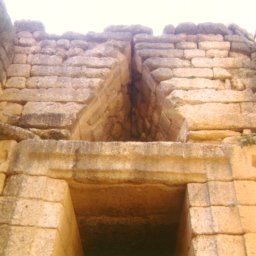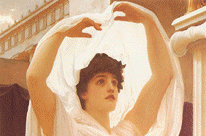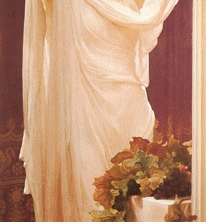

|
The Works of Homer |
![]() The Iliad of Homer,
Samuel Butler translator [1898]
The Iliad of Homer,
Samuel Butler translator [1898]
![]() The Odyssey of Homer,
Samuel Butler translator [1900]
The Odyssey of Homer,
Samuel Butler translator [1900]
![]() The Iliad and Odyssey [Unicode Greek]
Homer in the original Greek.
The Iliad and Odyssey [Unicode Greek]
Homer in the original Greek.
![]() The Homeric Hymns,
translated by Hugh G. Evelyn-White [1914]
The Homeric Hymns,
translated by Hugh G. Evelyn-White [1914]
![]() The Adventures of Odysseus and the Tale of Troy
The Adventures of Odysseus and the Tale of Troy
By Padraic Colum, Illustrations by Willy Pogany [1918]
A retelling of the story of Odysseus with gorgeous line-art illustrations.
Thanks to Eliza Fegley at sacredspiral.com.
Men are from the Iliad, Women are from the Odyssey...
![]() Homeric Fragments,
translated by Hugh G. Evelyn-White [1914].
A few scattered notes about other lost works of Homer.
Homeric Fragments,
translated by Hugh G. Evelyn-White [1914].
A few scattered notes about other lost works of Homer.
For over three centuries scholars have debated whether an actual person named Homer existed; some have speculated that the name Homer is actually a collective name for a group of bards (the Homeridae) who redacted (edited) a existing cycle of oral epics about 800 B.C.E. Others believe, based on textual evidence, that one person did compose or redact the two major Homeric compositions. In any case, stating an opinion about this question would be a good way to start a bar fight at a conference of classical scholars....
Certainly, there are few details about Homer's life. According to classical sources, Homer lived around 1200 B.C.E.; today dates of the 8th or 7th Century B.C.E. are quoted. Homer is traditionally described as being blind--based on one Archaic Greek fragment--but the visual quality of his work makes this hard to believe; perhaps he became blind later in life.
The Homeric cycle was composed around the same time as the Indian Ramayana, which it resembles thematically. The entire Homeric cycle, of which the Iliad and Odyssey are the only complete surviving works, included dozens of books composed by Homer and others. Some fragments of this cycle are included below.
The Illiad is based on events which probably occurred around 1000 B.C.E. The Mycenean Greeks of this era were contemporaries with a Bronze age city in Asia Minor on the Aegean coast of what today is Turkey. Both these cultures employed megalithic architecture. Heinrich Schliemann, a German archeologist in the early 20th Century, excavated both Mycenae in the Peloponessus region of Greece, and another site in western Turkey which he identified as the actual city of Troy. 'Troy' was destroyed (sometimes by fire) and rebuilt--not once, but multiple times--and resembles closely the description of Troy in the Iliad. Whether the events in the Iliad are literally true in some sense is still unknown. The Odyssey, on the other hand, is pure fiction, and one must strain to correlate its plot with any actual geography or history; it has been called the first science fiction novel.
In any case, these stories remain the most ancient European literature that we have intact; because of their lively pacing and vivid characters they still have strong appeal for modern readers.
Homerica
The following are fragments written by other authors in antiquity on the subject of the Homeric epic and Homer; some of these were spuriously attributed to Homer. These are remnants of a huge epic cycle which encompassed the whole mythological and legendary history of the Greeks, of which the battle for Troy is the centerpiece. The cycle was never completely canonized, and as late as classical Roman times Virgils' Aeneid added yet another epic poem to the collection. It seems that sequels and prequels were just as popular in Ancient Greece as in modern Hollywood...
These are from Hesiod, the Homeric Hymns and Homerica by Hugh G. Evelyn-White, [1914] (Loeb Classics #57). The other portions of this book are presented above on this page, and in the Hesiod section; this etext was scanned as the Online Medieval and Classical Library Release #8 by Douglas B. Killings, and is also available from the Gutenburg Project.
These are a couple of humorous pieces on Homeric themes.
![]() The Battle of Frogs and Mice.
A short parody of the Iliad.
The Battle of Frogs and Mice.
A short parody of the Iliad.
![]() The Contest of Homer and Hesiod.
A bardic battle royale between Homer
and Hesiod.
The Contest of Homer and Hesiod.
A bardic battle royale between Homer
and Hesiod.
|
|
|
|




